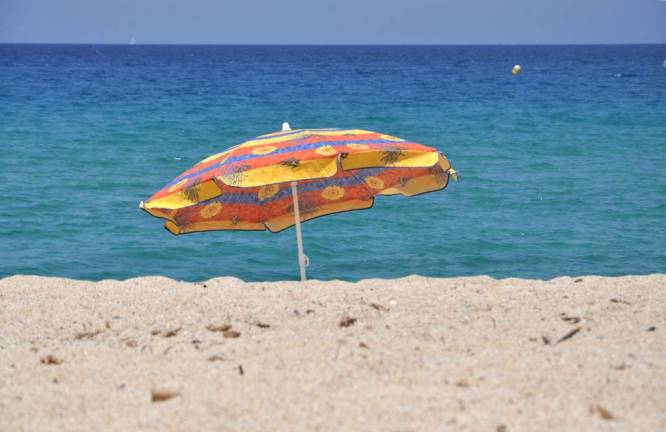Street Shrink: Full-Disclosure

Sharing personal details is crucial for moving friendships past vacation time In case Al Roker hasn't spread the word, I thought I'd be the emissary: it's hot in New York City. I've discovered that part of fencing the heat is finding ways to evade it. You can run and you can certainly hide in Montauk, a halcyon Hampton where listening to the torrent of waves and dousing yourself in ocean views might restore your sanity. On these sojourns east I've met several new people and it's been interesting to see which conversations with strangers turn into fully formed friendships or potential romances once we're back on Manhattan island time. Some strangers I've met have been fleeting. The connection dissolves once the conductor yells "Next stop Penn Station!" while others have turned into people now ingrained in my city texting rounds. The common thread between the lasting and the ephemeral is the practice of self-disclosure. The social penetration theory maintains that the development of a relationship is inextricably tied to the ways participants communicate. In order for any relationship to move forward there must be some level of disclosing personal information about oneself. Interactions naturally begin with superficial "small talk," but those that progress exhibit artful self-disclosure if both participants are engaged and willing. Psychologists Altman and Taylor (1987) describe self-disclosure as a wedge where beginning conversations are both narrow and superficial and gradually become broader, with a greater variety of meaningful topics discussed. Several psychologists put the disclosing paradigm to test using university students as participants. In self-disclosure experiments students are matched with strangers and assigned a series of questions to ask one another. The questions begin broad and gradually become more impactful and private. The results indicate that after 45 minutes of exchanging questions, those who disclose more personal information report liking each other more than pairs who remain mum. Opening up to people fosters trust and acceptance, especially when the disclosing is reciprocal. Psychologists who study self-disclosure in relationships find that the more couples tend to disclose, the higher levels of happiness they report. Though we self-disclose to those we like, it also works the other way. We like people because we've self-disclosed to them. We've trusted them to accept our interests, passions, and opinions. And it feels good to have these pillars mirrored and validated. It also creates a more cohesive picture of someone, especially when at a Montauk bar and out of their New York City comfort zone, when you understand where they've from, how their personalities have formed, and who the important players in their life are. Chances are if we've spoken about your siblings and interests you had growing up, those conversations will resonate more than discussing the oppressive summer heat. The French writer Marcel Proust was onto the concept of self-disclosure and created a questionnaire that asks personal questions about aspirations, fears, and values. The aforementioned psychological studies ask similar meaningful questions when evaluating levels of self-disclosure between strangers. Now and again when strolling through the streets on a Sunday, I'll ask whoever I'm with a few Proust questions, and though I've usually known said person for some time, revelations are revealed. And without fail, I instantly feel a rush of closeness to him or her. The exciting part about self-disclosure is that it introduces novelty and wonder into both new and already existing relationships. Even those you've known forever can find ways to surprise and intrigue you, which is why it's essential to remain a curious and active interlocutor. The next time you find yourself in a new town whilst trying to escape the city heat, try asking and disclosing the below 5 questions to someone. A relationship might emerge because of what's revealed and in that case, you might have a very social winter ahead. If you could be anything in the world, what would it be? What are you most afraid of? What is the trait you most value in yourself? What is your greatest accomplishment? When was the last time you danced alone? Kristine received her Master's in psychology from New York University. E-mail her at StreetshrinkNYC@gmail.com for topic requests.